Perhaps the men at the Chamber of Commerce are honorable men. Blithely they orchestrate showy flourishes of promise, what with ‘ribbon-cutting ceremonies’ and grant-deals and brochures. Perhaps their absurd platitudes regarding ‘economic development’ are mere rituals about which these men are at least vaguely self-aware. Without a doubt, the Chamber and its men in towns across Upstate New York may contain some of the most steel-nerved and resilient sorts of men that this country has ever beheld.
After all — Upstate is dying, and the diagnosis appears to be terminal in the great majority of her withering and marbled towns. Even if I disavow near everything the prophets of ‘economic development’ spout by the light of day, I must offer an acknowledgement of respect for their efforts — their Sisyphean resolve is objectively an incredible feat to observe, for they stare directly into Death but somehow, by an almost Nietzschean dynamism their sun-tanned and cheery affects never diminish.

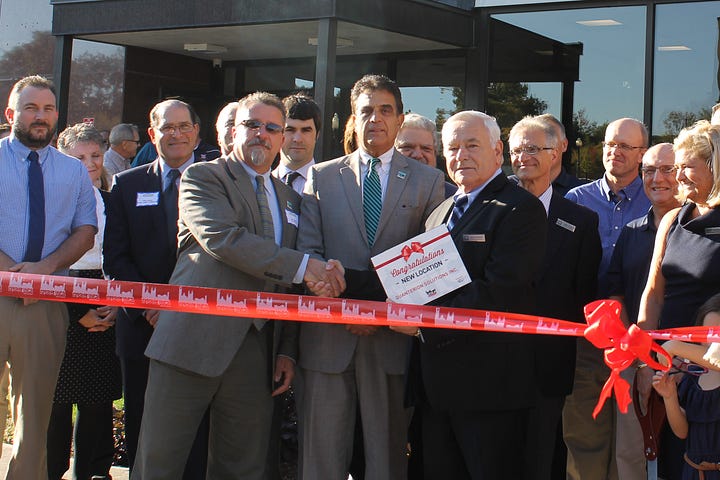
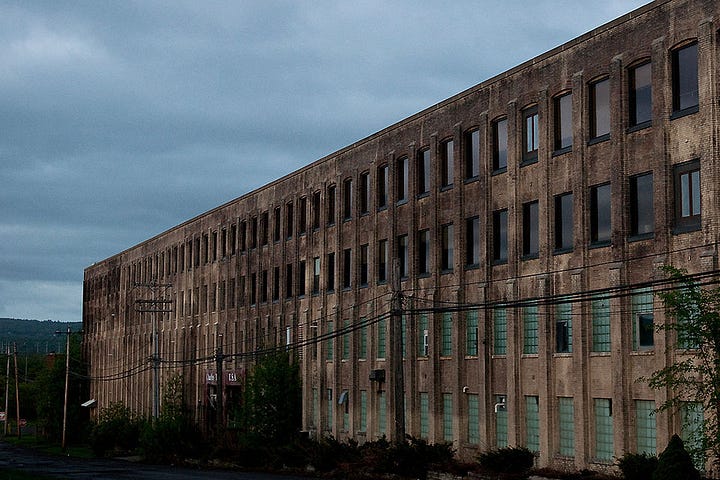

Yet the mindset that comes stock in Chamber of Commerce offices across the State is almost heartbreakingly obtuse — even puerile. Those who locally expound a growth-based-mindset for the economic vigor of my State’s hinterland towns are, to put it crassly — pissing up a long rope. Bizarre and ridiculous schemes for state-funded ‘artist loft apartments’ in our empty downtowns will not save us. Efforts at ‘cleaning up’ squalid and somber settlements like Gloversville and Utica will fail again and again, as they have for decades. The obstinate retardation that Albany directs onto all efforts to ‘rise the tide’ in Upstate will not stop — and more corrupt and ridiculous pork-barrel projects will proliferate only to be later dropped and left to rot.
Before you roll your eyes and guffaw, take note — I am a native son of Upstate, not yet thirty years of age. I have soberly watched the grotesque mismanagement of my home state for my entire life, and my faith in the Capitol and in local officials to give Upstate a makeover into some kind of economic and cultural hotbed is exactly zero. I know by all I have observed that in spite of cheery slogans and feverish grant writing, Upstate will continue to be a depressing husk of a region probably as long as I live.


And thank heaven for that.
I have traveled across this country and taken a decade-long deep dive into what is happening “out there” — away from the silent banks of the Erie Barge Canal and far from the monthlong bouts of overcast that darken the NYS Thruway. In spending extensive amounts of time visiting all forty-eight contiguous United States, I have found something that any exponent of ‘economic revitalization’ would find shocking: You do not want what you think you want. Whenever I have had the displeasure of visiting a place with a proliferation of ‘good jobs’, I found interstates choked with traffic, ungodly high rents and unaffordable homes, and a soulless ugliness so gaspingly extensive that it chokes out all manner of local color, romantic history, and eccentric beauty.
In Austin Texas their own history is a dim memory, paved over by so many Chik Fil-A’s and Ramada Inns — the strip mall reigns supreme. And in similar areas, throngs of ‘digital nomads’ change the face of their host towns and regions, only to move on in a few years once they’ve driven the rents sufficiently skyward. In little towns across this land from Missoula to Miami, I’ve seen the current of ‘prosperity’ ravage all sense of personality a town or region could possess. I — a son of the tired and brambled banks of the defunct Black River Canal — set off to find Huckleberry Finn’s America and I found it dead on arrival. It was only in the ‘depressed’ places that I saw a twinkle of it that threatened to still burn brightly. And it was only upon coming home to Upstate that I realized how lucky I am to be from this place — not in spite of the economically depressing conditions, but because of them.
Perhaps we do not have it so bad after all, what with our gilded ruins and sleepy downtown streets — perhaps our foul weather and sunless climes are our unsung heroes, thanklessly shielding us from the dubious blessings of ‘success’. Step outside the mindset of the plastic surgeon or the cheerleader — let all neoliberal declamations fall to silence. Enter the mind-state of the placid observer; the one who bears witness to the crumbling of great empires and their cities. At the Utica train station, the baroque columns of marble stand proudly erect above a sleeping sentry and his disheveled desk. The gale-force winds pummel the station, eerily echoing through its gilded corridors. Everywhere you go — emptiness. Emptiness: the substance of all solace, a peaceful thing which smells of death. Gone are the days of heaving crowds and their discontent: Everyone has now departed but you. On the street, there is nothing jocular — no sarcasm or Athenian smirk, no stink of relevance and its condescension. It is Utica — husk of greatness; come-as-you-are, the town where the few who linger on her rain-soaked streets appear wide-eyed upon sighting another living human being. In such a state, one apprehends the real taste of decline — one sits high upon a vista above all of Western Civilization, surveying its ruined efforts.
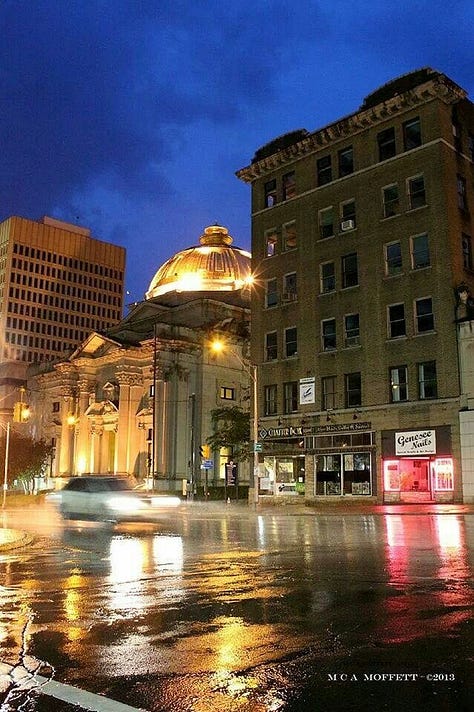
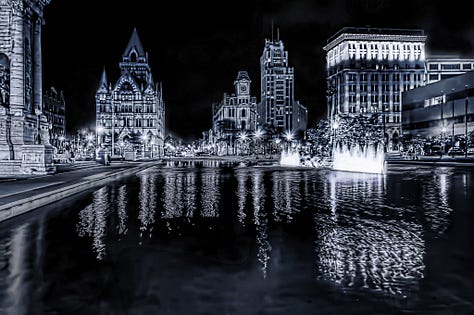

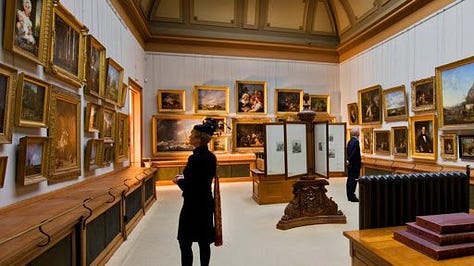
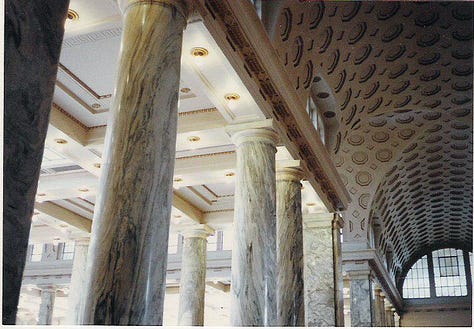
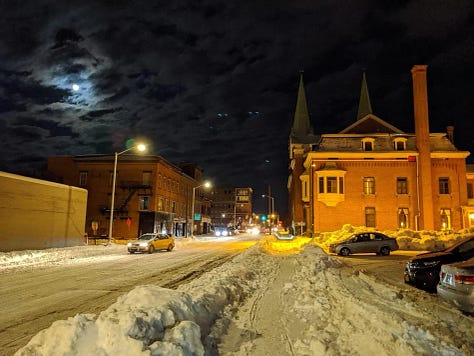
From such a place, sadness could reign, but ah! — One cannot be sad as they watch the blackbirds gather above the sorrowful Utica marsh or inspect the rusted machinery through the chink in the factory glass. For after death is absolution and a rise of the spirit — all things take on the glowing hue of memory, and here, one can dream. Like a general in his war-room puffing his pipe above ancient maps, a man can stroke his whiskers high in the old hotel downtown, overlooking the neon “UTICA” sign and remember that Utica was named for an ancient Tunisian city that no longer exists. The wheels of history turn madly in some quadrants of time, but here they have slowed, and the mind can taste poetry as he lingers by the crypt. “Utica,” a man can say, “somber and forgotten old Utica — memento of feverish and long-gone times… Utica….”
And all across the countryside there is ruination and grief, but it has been plowed over by the loving hand of time. Empty farmhouses heave under monstrous drifts of snow, and the horizon is sleek — pure white against the bleak grey blanket of motionless clouds. Wrecked trailers dot the woodland, and haggard drunks count their pennies in salt-stained roadside bar-rooms. Again and again, the classic rock tunes play — the same songs every single night, almost in order: “Dream on… dream on…” Yet there is some comfort here; the anger has dissipated somehow, as if by Providence. Somehow, the Upstater knows better than most in this blessed country that time is kind, and the years will pass even if great castles sink into mud and vast libraries are lost. At Jervis library in Rome, the silent room on the second floor holds the annuls of former days — and there is no waiting list to peruse them.
Perhaps my dear friends at the Chamber of Commerce might be served by relenting — by throwing in the towel. The silence of our streets is hardly wearying. Our empty and fallow fields offer us all a chance to cleanse our hearts and to purify — to contemplate the infinite in this vast chasm of peace. Why welcome the devil into your door — why pine for heavy-traffic commutes and profane billboards? Why beg for arrogant souls to tear down your house and carve up your world for a dollar? My friends — we are aristocrats in an asylum of solitude and peace; be wise, lean into it, do not disrupt this great fortune we have received. At times, a man — and indeed a whole state — must stare deeply into his fate, and embrace it as a welcome friend, that he may know release and lightness in his soul.


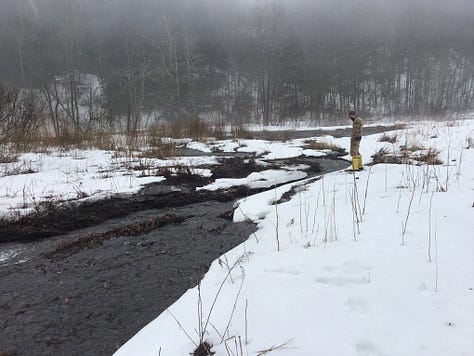
Only hot steel and coal embers and the extreme fever of national youth could warm this forlorn place into a place of optimism — and our national stores of these commodities appear to have run dry. The very substance of ‘revitalization’ has withered from the body of our nation, and does not threaten to return. No matter — the allegedly ‘vital’ qualities of economic success have not entirely steamrolled the slowness and beauty of our world. Our eccentrics can still freely sit upon their porches, and larger-than-life tales can still burgeon on the old canal. Rather than hastening to render our idyllic corner of America into yet another bleak strip-mall, perhaps we can hang onto what we’ve got, and breathe life back into it. Perhaps just as New York once caused America to rise during the halcyon days of the canal, this tiny seed within our great state will again aid the country in finding itself again.
I shall close with a quote from Fred Exley’s 1968 cult classic novel A Fan’s Notes. He writes here of taking the train northward into Upstate’s bleak hinterlands from Utica to his native Watertown —
“In the vague way that one is aware of the contours of the back of one's head, I had always been aware that my corner of America was farm country, but only that morning did I realize how very northern or "Russian" — almost steppelike — it really was. After watching the slightly rolling, nearly treeless landscape for a long time, and doubtless abetted by the unconscious knowledge that I was rising on the map, I began to experience the oddly comforting sensation of ascending to the very top of the world, of rising to some place apart from the fitful concerns and harsh sorrows of men, to a glacial and opaline haven where a man, having been hard-used by the world or having used himself hard, might go and ask himself where things had gone wrong.”

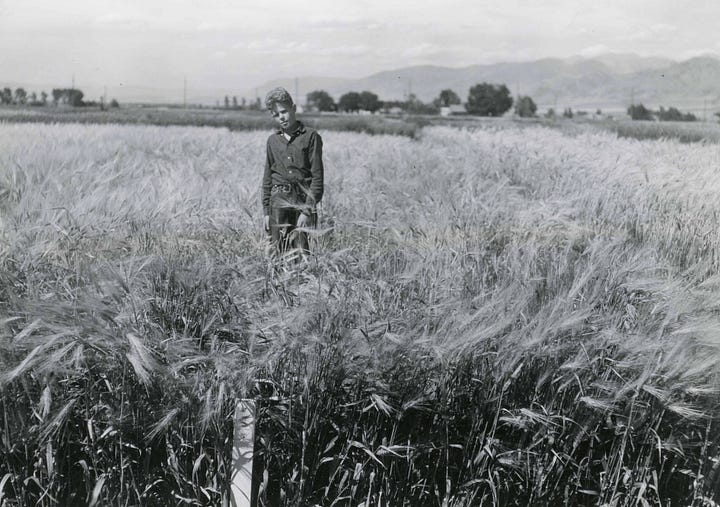


"And thank heaven for that... perhaps we don't have it so bad!" .... love the attitude of acceptance and gratitude portrayed in this article
Near-Downtown Kansas City spent a lot of money creating an arts and entertainment district, with loft apartments for Seinfeld-style living for downtown IT workers.
Then they tried to pass a sales tax that would bulldoze the entire district and create a ballpark for the Royals. The Arts people and residents organized a “No” vote and defeated the sales tax plan. And the city has been cursing them ever since.
So much for Democracy…